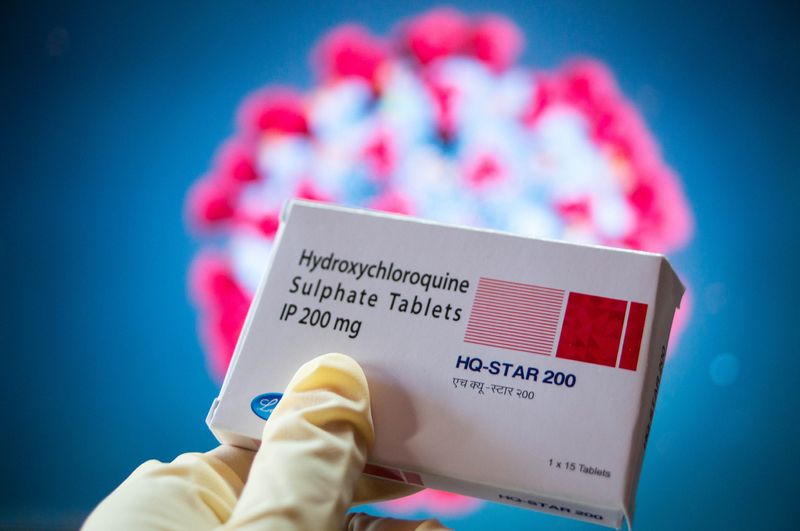Swirling in the center of a national debate about the safety of vaccines — which exploded when President Donald Trump made claims Sept. 22 that vaccines and Tylenol are associated with autism — is a never-published draft of a medical study that began in the heart of Detroit at Henry Ford Health.
It was called the “Impact of childhood vaccination on short and long-term chronic health outcomes and children, a birth cohort study,” and it began in 2017 at the behest of a nonprofit anti-vaccine advocacy organization known as the Informed Consent Action Network, or ICAN, according to testimony presented earlier this month to a U.S. Senate subcommittee.

Henry Ford’s research was completed in 2020 and found vaccinated children suffered from such chronic diseases as asthma and eczema, autoimmune diseases and neurodevelopmental disorders at a rate more than twice as high as those who had never been vaccinated, U.S. Sen. Ron Johnson, a Republican from Wisconsin, said during the Sept. 9 hearing.
Yet, he said, the study was tabled for five years and “suspiciously withheld by the authors,” Johnson said, suggesting it was part of a conspiracy to mislead the American people.
“The purpose of these hearings is to force the acknowledgement of reality. Exactly what all the realities and truths are, I cannot say,” Johnson said at the hearing before the Senate Homeland Security and Governmental Affairs Permanent Subcommittee on Investigations. “We have been lied to repeatedly and in order to restore public faith in federal agencies, integrity must return to science. You must also have open minds and be willing to face the truth.”
The retrospective epidemiological study was led by Dr. Marcus Zervos, head of Henry Ford’s division of infectious diseases and medical director of infection control. It included more than 18,000 children born between 2000 and 2016 who had insurance coverage through Henry Ford’s Health Alliance Plan (HAP).
Although the draft of the study suggests an association between chronic illnesses and immunizations, the last line says: “Our preliminary findings cannot prove causality and warrant further investigation.”
Aaron Siri, the managing partner of the New York-based law firm of Siri & Glimstad LLP, which represents ICAN, alleged the findings detailed in the draft of the study were “shoved in a drawer” for years because “its findings did not fit the belief and the policy that vaccines are safe.”
He alleged Zervos was hiding the outcome of the research and refused to allow it to be peer reviewed or submitted to journals because he was afraid of being fired.
A spokesperson for Henry Ford Health declined to allow the Free Press to interview Zervos, but said the health system “was unaware this long-rejected and unvalidated draft was being talked about or had somehow been shared, and we were not given the opportunity by Congress to weigh in or testify.”
In an emailed statement, Henry Ford said:
“There are many factors that determine whether a research paper should be submitted for consideration by scientific journals. In this case, an initial peer review of the draft revealed immediate and significant concerns due to serious data flaws, including:
“In the end, this report was not published because it did not even come close to meeting the rigorous scientific standards we demand — not because of the results.”
Dr. Jake Scott, infectious diseases physician at Stanford University who also testified before the Senate subcommittee, said the design of the Henry Ford study didn’t meet scientific standards, causing distortions in the data.
“The unpublished Henry Ford analysis being presented today is fundamentally flawed by design,” Scott said. “Vaccinated children had twice the follow-up time and substantially more health care visits than unvaccinated children. When diagnoses require doctor visits, children seeing doctors more often will inevitably have more recorded conditions. This is classic detection bias that inflates risk estimates without reflecting true health differences.”
He testified that he is working with a team of international scientists to build a comprehensive, publicly accessible database of international vaccine safety data.
“We set out to answer a fundamental question: What does the complete trial record actually show about vaccine testing?” he said. “We’ve catalogued 1,088 randomized controlled trials from 1941-2025 involving over 10.5 million participants. … Anyone with Internet access can verify our findings. This is what transparency looks like.
“Throughout my career, I’ve treated countless patients with vaccine-preventable diseases. During COVID, I lost unvaccinated patients who would have survived with vaccination. These realities co-exist. Vaccines can cause rare adverse events. And they do prevent vastly more death and disability.”
He called on lawmakers to base public health policy not on a single, unpublished study from Detroit that fails to meet scientific thresholds, but on “transparent, peer-reviewed evidence that anyone can verify. … Vaccines have saved 154 million lives globally over 50 years. The data are public. The evidence is overwhelming.”
Siri countered, saying the statistic that 154 million lives have been saved globally by vaccines is “the epitome of corruption of science” based on “guesswork” by the World Health Organization.
Sen. Richard Blumenthal, D-Connecticut, alleged Trump, Health Secretary Robert F. Kennedy Jr. and other administration leaders are corrupting science — “before our eyes, in real time” — in a way that is “unprecedented in our country’s history.”
“Since President Trump took office in January, Secretary Kennedy and other administration officials have silenced scientists, halted research, crippled our public health infrastructure and politicized institutions that were once renowned around the world for adherence to nonpartisan, science-based recommendations. And they’ve also demonized vaccines and taken steps that will make it harder for Americans to access them, depriving Americans of basic public health tools.”
He called the Henry Ford study “deeply flawed,” and said it isn’t evidence of a cover-up.
“No reputable journal would or should publish that study,” he said. “It pains me that unscientific studies like this one are being promoted in this committee purporting to be scientific fact, and I fear this kind of hearing will only undermine our already shaken public health system.”
This isn’t the first time a research study led by Henry Ford physicians has come under scrutiny.
In May 2020, in the throes of the COVID-19 pandemic, it published a multicenter retroactive observational study purporting that early treatment with a drug called hydroxychloroquine cut in half the death rate in patients hospitalized with COVID-19.
It was considered an outlier by many in the medical community because it contradicted other research and was observational, retrospective and not randomized or controlled. Some saw evidence of bias in the study design.
Dr. Anthony Fauci, who, at the time, was leading the coronavirus federal response, said the Henry Ford study was flawed because many of the patients who were treated with hydroxychloroquine also got corticosteroids, “which we know from another study gives a clear benefit in reducing deaths with advanced disease,” he said.
But in the aftermath, Trump took to Twitter to praise the Henry Ford study, writing: “The Henry Ford Health System just reported, based on a large sampling, that HYDROXYCHLOROQUINE cut the death rate in certain sick patients very significantly. The Dems disparaged it for political reasons (me!). Disgraceful. Act now @US_FDA”
In June 2020, the U.S. Food and Drug Administration revoked the emergency use authorization for hydroxychloroquine, saying that there had been reports showing the drug could cause dangerous heart arrhythmias in people with COVID-19.
The Free Press reported that Dr. William O’Neill, then the medical director of Henry Ford’sCenter for Structural Heart Disease, collaborated with Trump administration officials to try to pressure the FDA into allowing the health system to continue treating COVID-19 patients with hydroxychloroquine despite mounting evidence that it could be harmful.
A report from a House subcommittee investigating the pandemic also suggests O’Neill continued to prescribe the drug off-label to COVID-19 patients after the FDA revoked the emergency use authorization, and tried to secure millions of dollars in federal funding through Trump administration allies to help pay for the Henry Ford research study on hydroxychloroquine.
A year after the Free Press published the report, Henry Ford Health said its own, independent third-party investigation found no wrongdoing.
“Like other health systems, we participated in a number of studies and clinical trials, including for hydroxychloroquine, during a time when there were no known treatments for COVID-19,” the health system said at the time. “When our own studies determined that hydroxychloroquine was not an effective treatment, we suspended the study and any use of the drug.”
Contact Kristen Shamus: kshamus@freepress.com. Subscribe to the Detroit Free Press.
This article originally appeared on Detroit Free Press: Unpublished Henry Ford study at center of vaccine safety debate
Reporting by Kristen Jordan Shamus, Detroit Free Press / Detroit Free Press
USA TODAY Network via Reuters Connect



